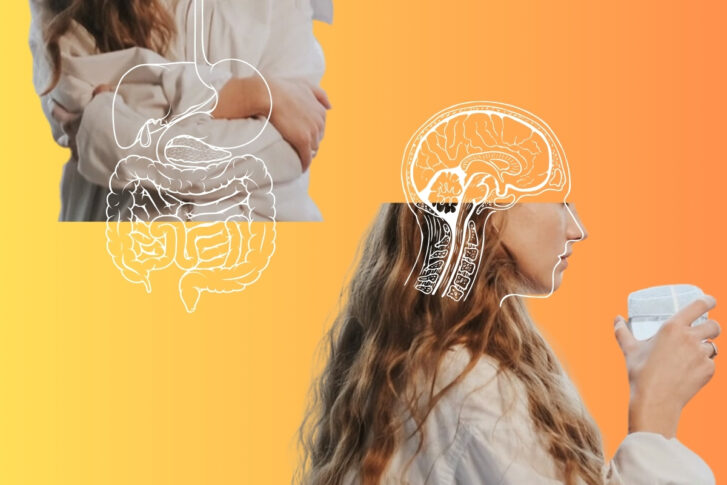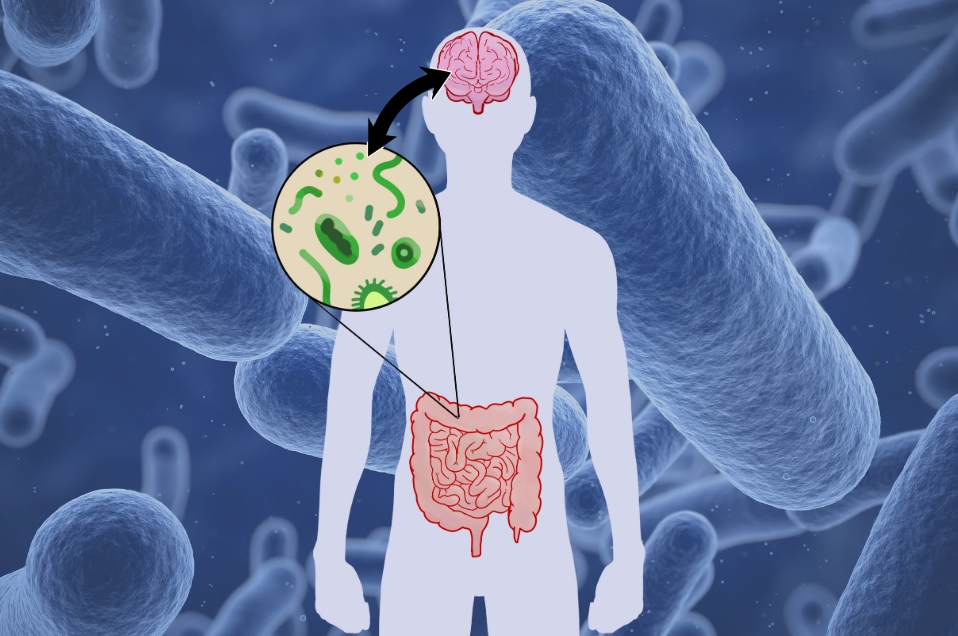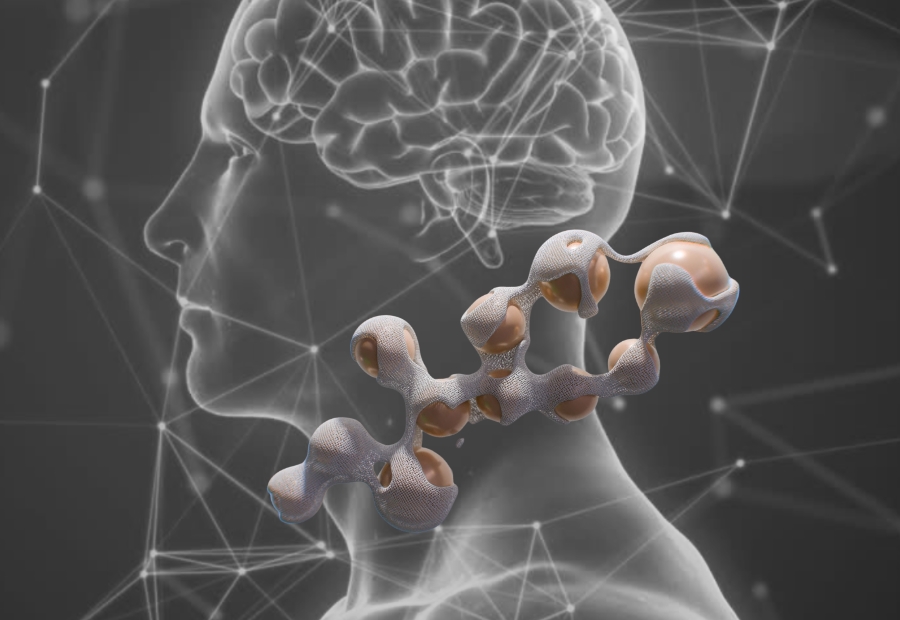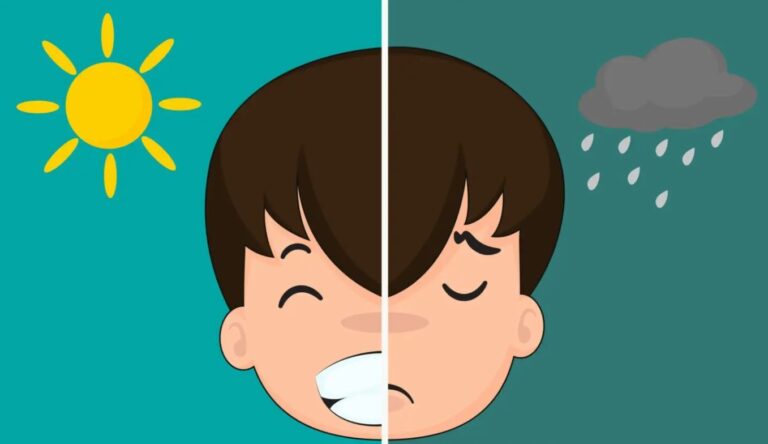I’ve always found the connection between our digestive system and mental health truly captivating. My experience has led me to understand how deeply the gut microbiome influences both our physical and mental states.
This connection is especially critical for women, as it affects a wide range of health aspects, from emotional regulation to physical symptoms. The complex communication pathways between the gut and brain are not an easy thing to understand since there are so many things to take into consideration. Probiotics play a vital role in maintaining mental well-being in these situations.
A key discovery is the role of gut bacteria in producing neurotransmitters such as:
- Dopamine
- Gamma-aminobutyric acid
- Norepinephrine
These neurotransmitters are crucial in mood regulation and shaping our emotional responses. Today, I want to discuss this connection in greater detail.
Gut Microbes and Mental Health
The gut microbiota, consisting of trillions of microbes such as bacteria, fungi, and viruses, plays a pivotal role in mental health. This complex ecosystem within our digestive system is increasingly recognized for its significant influence on the brain and mental well-being.
Disruptions in the microbiota have been linked to a range of mental health conditions, including depression, anxiety, and autism spectrum disorders. These links underscore the importance of gut health, particularly for women, whose hormonal fluctuations can further impact the connection.
Production of Neurotransmitters
- The microbiota produces various neurotransmitters, key chemical messengers in mood and emotion regulation.
- A significant portion of serotonin, the ‘feel-good’ neurotransmitter, is produced in the gut.
- Serotonin production is vital for mood regulation; imbalances are linked to depression.
Generation of Short-Chain Fatty Acids (SCFAs)
- Gut microbes ferment dietary fibers to produce SCFAs like butyrate, propionate, and acetate.
- SCFAs modulate brain function, reduce inflammation linked to mental health issues, and directly influence mood and cognitive functions.
Metabolization of Bile and Amino Acids
- The microbiota metabolizes bile acids and amino acids, affecting brain health.
- Bile acids can influence mood and behavior.
- Certain amino acids are precursors to neurotransmitters.
Impact on Women’s Mental Health
- The gut microbiota’s balance is crucial for women, especially due to hormonal fluctuations during menstrual cycles, pregnancy, and menopause.
- A balanced microbiota helps mitigate mood swings and enhances emotional well-being.
It is important to point out that microbimes also play a role in urinary tract infections.
Vagus Nerve and Neurotransmitters
The vagus nerve stands as a pivotal element in the gut-brain connection, acting as a primary conduit for communication between the gut and the brain. This nerve is responsible for the bidirectional transmission of signals, profoundly influencing a range of bodily functions.
In terms of mental health, and particularly for women, the role of the vagus nerve is of paramount importance due to its involvement in transmitting signals, where a significant portion of neurotransmitters is produced.
Transmission of Signals
The vagus nerve facilitates the flow of information between the gut and the brain. This flow is crucial for maintaining the body’s homeostasis and responding to various physiological changes. It plays a role in everything from digestion to heart rate regulation, showcasing its broad impact on health.
Impact on Mental Health
For women, the neurotransmitters produced in the gut, such as serotonin, are essential for regulating mood and emotions. Serotonin, often dubbed the ‘happiness hormone,’ is predominantly produced in the gut and is a key player in mood regulation.
Imbalances in serotonin levels are commonly associated with mental health conditions like depression and anxiety.
Microbes in Neurotransmitter Production
The production of neurotransmitters like serotonin in the gut is largely influenced by the gut’s microbial diversity. These gut microbes are involved in synthesizing and modulating neurotransmitters, thereby impacting mental health. A diverse and balanced gut microbiome is thus crucial for optimal neurotransmitter function.
Maintaining a Healthy Gut Microbiome
For women, maintaining a healthy gut microbiome is essential for emotional well-being. This can be achieved through a balanced diet rich in fiber, fermented foods, and the use of probiotics.
Probiotics for women are particularly beneficial as they help in nurturing the microbiome, thereby supporting the production of mood-regulating neurotransmitters.
Diet and Probiotics for Mental Health
A diet that supports gut health, combined with probiotic supplements, can have a positive impact on mental health. They can be useful during pregnancy as well.
Foods rich in prebiotics and probiotics help in fostering a healthy environment, which in turn supports the vagus nerve’s function in maintaining mental and emotional balance.
Probiotics, Prebiotics, and Mental Health
Probiotics, which are live microorganisms found in foods like yogurt, dietary supplements, and various fermented products, play a crucial role in promoting gut health and, by extension, mental health. Of course, this is only one of many benefits associated with probiotics for women.
These beneficial bacteria are instrumental in maintaining a balanced gut microbiome, which is closely linked to mental well-being. This connection is particularly significant for women, as hormonal fluctuations can impact both gut health and mood.
| Aspect | Details |
|---|---|
| Role in Mental Health | Probiotics improve gut health, leading to better mood and lower risk of mental disorders. They’re especially beneficial for women facing hormonal-related mood changes. |
| Gut Health and Microbial Diversity | Probiotics increase beneficial gut microbes, essential for mood-regulating neurotransmitters like serotonin. |
| Specific Strains and Their Benefits | Strains like Lactobacillus positively impact mood and cognitive functions, helping combat depression and anxiety. |
| Probiotic Supplementation | Consistent probiotic use is key for maintaining a balanced gut microbiome and mental health benefits. |
| Synergy with Prebiotics | Prebiotics support probiotics’ effectiveness. Foods rich in prebiotics, like fruits and vegetables, enhance mental health outcomes. |
Dietary Influence on the Gut-Brain Axis
Diet plays a crucial role in supporting the gut-brain axis.
| Food Category | Benefits for Gut-Brain Axis |
|---|---|
| Omega-3 Fats | – Found in oily fish. – Increase good bacteria in the gut. – Reduce the risk of brain disorders. |
| Fermented Foods | – Examples include yogurt and kefir. – Contain healthy microbes that alter brain activity. |
| High-Fiber Foods | – Provide prebiotics that nourish gut bacteria. – Support the growth of beneficial gut microbiome. |
| Polyphenol-Rich Foods | – Found in cocoa, green tea, etc. – Polyphenols are digested by gut bacteria, supporting gut health. – May improve cognition and overall brain health. |
| Tryptophan-Rich Foods | – Examples include turkey and eggs. – Tryptophan is converted into serotonin, a neurotransmitter important for mood regulation. – Supports the gut-brain connection, especially beneficial for women’s mental health. |
FAQs
What 3 foods are bad for your gut?
Excessive sugar can disrupt the balance of gut bacteria, leading to inflammation and other gut issues. Often high in additives and low in fiber, processed foods can harm beneficial bacteria. Some artificial sweeteners may negatively impact microbiota and lead to glucose intolerance.
Does serotonin from the gut go to brain?
Serotonin produced in the gut does not directly enter the brain due to the blood-brain barrier. It influences brain function indirectly by affecting the gut-brain axis, which includes neural, hormonal, and immune pathways.
How do you calm an anxious stomach (brain-gut connection)?
Pay attention to your eating habits and avoid overeating. Practice relaxation techniques like deep breathing or meditation. Include fiber-rich foods, probiotics, and omega-3 fatty acids in your diet to support gut health. Physical activity can help reduce stress and improve gut motility.
What are the best probiotics for depression?
Lactobacillus helveticus and Bifidobacterium longum strains have been studied for their potential mood-improving effects. Lactobacillus acidophilus can help in alleviating depressive symptoms. It is important to say that using them together with antibiotics, if the depression correlates with some other condition.
Epilogue
As an expert in the field of gut health and its impact on mental well-being, I’ve come to recognize the vital importance of the gut-brain connection. This connection underscores the significant role the microbiome plays in mental health, highlighting the necessity of maintaining health for overall wellness.
In my experience, particularly with women, nurturing this connection through careful choices in diet, probiotics, and lifestyle can lead to remarkable improvements in mental wellness. The intricate relationship between the gut and brain, mediated by the vagus nerve and various neurotransmitters, calls for a holistic approach to health.
Related Posts:
- What's the Connection Between Fear, Trauma, and Anger?
- The Importance of Discussing Men’s Mental Health
- Urgent Care for Mental Health Management - Treatment…
- How Mental Health Counseling Helps with Anxiety -…
- What to Expect in Mental Health Treatment? Find Your…
- The Early Signs of Mental Illness - What Are They…
















